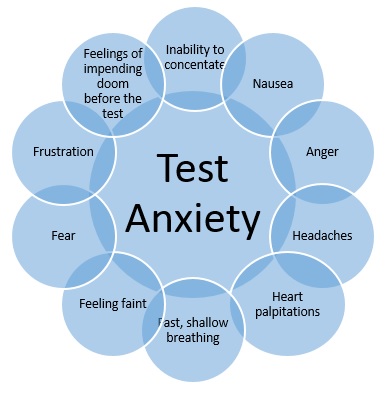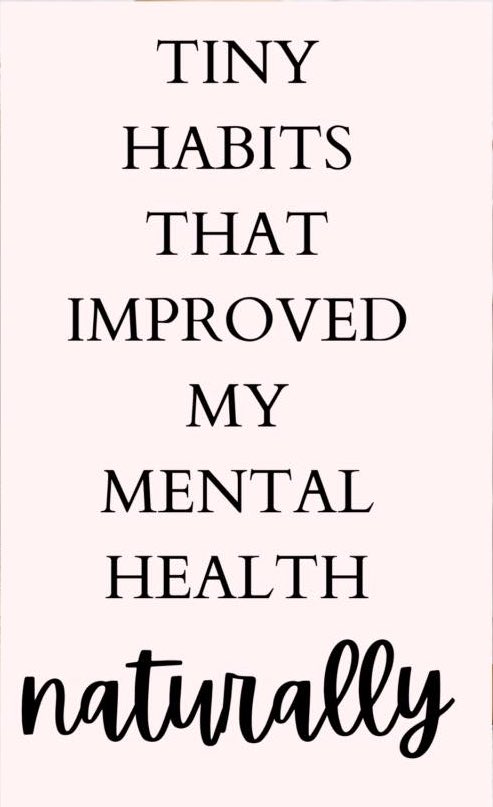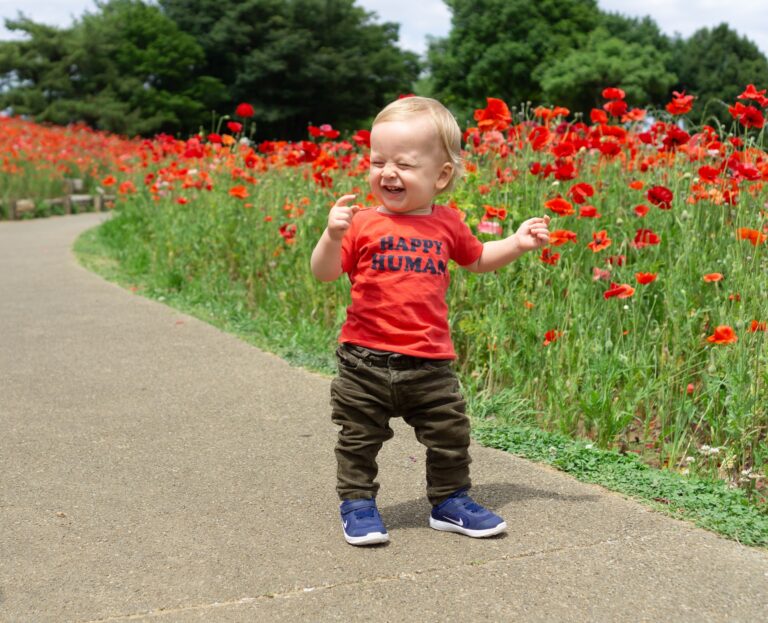Anxiety isn’t just something bad that happens to you, it serves a function of performance.
Anxiety isn’t out to get you. It’s your body and mind’s performance mode so the stress or the anxiety response can help you have more energy and get more done and then it’ll naturally resolve if you know how to channel.
Some daily habits you can use to naturally resolve your anxiety when you think of anxiety as a motivating energy to resolve problems.
Anxiety can become a powerful tool instead of just something bad that happens to you that you want to avoid and even if you do have an anxiety disorder these tools will help you reduce your stress levels and get healthier.
Lots of people struggle with stress and anxiety. We face a few modern problems that make it a lot harder for us to deal with stress because our anciently evolved brain isn’t so good at dealing with modern stressors. We all need to take an intentional approach to managing anxiety.
Let’s learn in depth of various scientifically, research based proven techniques which we can use in our daily lives ( tap / click to jump to the respective topic )
1. Are You Ready to Break Free from Physical Stress? Harness the Power of Exercise!
2. What’s the best morning routine to have a day with much less stress and anxiety ?
3. Is the Media Stressing You Out? Protect Your Adrenaline Glands Today!
6. Is Running from Anxiety Making It Worse? Discover the Power of Going Slow to Go Fast!
10. Are You Saying Yes to Anxiety ? Discover the Power of Saying No for Better Mental Health.
11. Why Does Nature Have a Soothing Effect on Anxiety and Stress Levels ?
12. Want to Counter Anxiety and Stress? Discover the Power of Relaxation
Are You Ready to Break Free from Physical Stress? Harness the Power of Exercise!
Many of our modern stressors are connected to problems that we can’t solve physically.
For many of us our modern stressors are things like deadlines and assignments, traffic noise etc
If you’re stressed about a problem at work; you may not sleep and later you might even solve that problem eventually.
But the adrenaline and the cortisol stay in your system; until you physically burn them off so this is where exercise becomes clutch.
Daily exercise is an essential part of reducing pent-up anxiety. Just five minutes of exercise has been shown to reduce cortisol and adrenaline levels.
Exercise can decrease overall levels of tension, It can elevate your mood, it can improve your sleep and it can improve your self-esteem. Aerobic exercises where you’re breathing really hard that tends to be the most effective type of exercise at reducing stress but really any kind of movement is helpful.
So going for a walk or a bike ride or even just doing like wall sits or stretching for a minute in your office, those can all be helpful.
It’s highly recommended just find a way to add some movement to your day and make it a routine.
What’s the best morning routine to have a day with much less stress and anxiety ?
How you start your day is going to set the tone for your entire day. Below is the classic example of bad ways to start your day.
So if you’re like the majority of the people; the first thing you do to make your anxiety worse is start scrolling through your phone, you look at social media or the news and then you drink some caffeine.
Caffeine is the most widely used psychoactive drug in the world.
It crosses the blood-brain barrier in seconds and it makes you feel more alert by reducing adenosine. But adenosine is a relaxation chemical in your brain.
Caffeine can also increase adrenaline and it can make you feel more irritable, anxious and more agitated. Now you can develop a tolerance to the alerting effects of caffeine meaning you’re going to need more coffee the next time to feel alert. But you don’t develop a tolerance to the anxiety effects of caffeine so caffeine use can impact your sleep and your anxiety for up to 48 hours.
Caffeine has been shown to contribute to anxiety and depressive disorders so if you’re serious about decreasing your anxiety try getting caffeine out of your system for at least three days and see how that impacts you.
You can replace coffee with green tea.
Now let’s learn about the best way of starting the day; with saying thanks to god / nature for all the good things that have happened in your life till now or just saying thanks for today as many in the world won’t be able to see today’s day at all.
Then think of top 10 things in your life for which you’re super thankful for and write it down on paper and pen, do not use your mobile phone for this activity. Writing is the best way to activate your brain. Drink lemon water and start moving your body.
You can drastically reduce your anxiety by making small and sustainable changes
Is the Media Stressing You Out? Protect Your Adrenaline Glands Today!
You are bombarded with constant news from all the sources like TV, Facebook, Twitter, WhatsApp etc
These 24 * 7 streams of disaster around the world trigger our stress response, as if we’re in physical danger but they don’t give us any place to act to create safety so if you wake up in the morning and you just start scrolling through your feeds or you start watching the news you’re basically giving other people the power over your adrenaline glands.
Do not start the day off with the news instead, sit back for a second and think about what you want to achieve today ? what’s your big goals in life ?
Start the day with gratitude and the best things happened in your life till date.
The tone of your day should be upbeat, calm, self-assured, peaceful and powerful. Now what kind of media does that for you ? None, right ?
You can try prayer and scripture study first thing in the morning, also meditation, journaling, uplifting music but the important thing is that the first thing you do is something you choose deliberately.
Choose to focus more of your time on areas that you can take action on; instead of on areas that are out of your control.
Task Management and Stress Relief: Can Marking Tasks Complete Activate Your Parasympathetic Response?
The stress response is designed to enhance performance and drive action, serving as a short-term reaction for bursts of speed. However, when stress becomes chronic and remains unresolved, it can become detrimental to our well-being.
Fortunately, our bodies have a natural balancing mechanism called the parasympathetic response, which promotes relaxation and restoration. Many of us are unaware of how to activate this response, but there are effective methods such as grounding exercises and breathing techniques that can help.
One natural way to alleviate the stress response is by completing tasks. For instance, if you find yourself worrying about a daunting assignment, breaking it down into smaller, manageable tasks and systematically checking them off can significantly reduce your stress levels.
It’s important to note that coping skills alone may only provide limited relief for anxiety. The most effective approach involves taking action to resolve the problem or threat at hand.
Alternatively, practicing active acceptance by letting go of things beyond your control can also contribute to anxiety resolution.
By adopting these practices into your everyday routine, you’ll learn how to maximize the benefits of your parasympathetic response and obtain natural stress reduction.
Say goodbye to chronic stress and embrace a healthier, more balanced life.
How to find a way to acknowledge when you complete a task and activate your Parasympathetic response?
Acknowledging when you’ve successfully completed a task is a vital aspect of maintaining productivity and managing stress. It’s important to find tangible ways to celebrate your accomplishments.
Long-term or ongoing projects can make this difficult, but by dividing them into smaller, more manageable tasks, the process may be more feasible.
It might be advantageous to include manual tasks in your routine when your employment largely involves mental, emotional, or virtual responsibilities.
Engaging in physical activities that showcase visible progress, such as cleaning, mowing the lawn, or fixing something, can be incredibly satisfying and relieving.
There’s something about the combination of physical tasks and the sense of completion that triggers a positive response in our brains, activating the parasympathetic response.
By embracing this approach and celebrating task completion, you not only foster a sense of accomplishment but also stimulate a state of relaxation and balance. Explore ways to integrate physical tasks into your workflow to experience the profound benefits they can bring to your overall well-being.
Is Running from Anxiety Making It Worse? Discover the Power of Going Slow to Go Fast!
Mastering Anxiety = Embrace Intentional Control Instead of Reactivity
Effectively managing anxiety requires intentionality and regaining control rather than succumbing to a reactive mindset.
Many people in our fast-paced society prefer to spend all of their waking hours working, checking emails continuously, or glued to their phones.
However, finding the time to pause, breathe, and slow down is crucial for regulating your nervous system throughout the day.
While it may seem counterintuitive, slowing down and engaging in calming or grounding activities can significantly enhance your productivity and reduce stress levels. Taking just a minute every hour to gain clarity, breathe, and intentionally decelerate can have a profound impact.
By prioritizing moments of calm and intentionally controlling your pace, you empower yourself to navigate anxiety more effectively. Discover the transformative power of embracing intentional control over reactivity and experience a more productive and serene lifestyle.
Need to Find Calm Amidst Daily Chaos of Your Life ? What Strategies Can Help You Regulate Your Nervous System?
Did you know that multitasking can trigger our brain’s fight, flight, or freeze response, activating the sympathetic nervous system? Strengthening your parasympathetic response is essential for promoting relaxation and balance. One effective way to achieve this is by adopting mono-tasking which is focusing on one task at a time. By eliminating distractions and closing unnecessary tabs, you allow your brain to handle tasks more effectively, reducing the overwhelm caused by multitasking.
Humans are the only ones who try to multitask against animals who do only one task at any given point of time. No wonder we can find out that animals do their job with higher quality.
Another valuable tool in anxiety management is mindfulness. By slowing down and being fully present in the moment, you cultivate awareness of your actions and surroundings. Mindfulness doesn’t require extended periods of time; it’s about simply noticing and acknowledging what you are doing before moving on. Integrating mindfulness into your daily routine can significantly contribute to anxiety reduction.
It’s important to understand how your sympathetic and parasympathetic nerve systems function.
While the sympathetic system prepares your body for danger or stress, the parasympathetic system promotes relaxation and restores balance.
By nurturing your parasympathetic response, you can counteract the effects of stress and anxiety.
Discover the power of mono-tasking, mindfulness, and the parasympathetic response in managing anxiety effectively. Optimize your daily routine and embrace a calmer, more centered approach to life.
Lost in the Small Picture? Learn How to Navigate Chronic Stress and Embrace the Bigger Picture of Well-being.
Resolving Chronic Stress, Unveiling the Brain’s Sorting and Management Challenges
Stress itself isn’t the problem—it’s chronic, unresolved stress that poses a significant threat to our overall well-being. When stress persists for weeks or even months, it becomes chronic and can have a detrimental impact on our health. The brain struggles to sort and manage the overwhelming stimulation, triggers, and threats it encounters daily. The feeling of being bombarded by numerous demands and urgencies triggers a response as if we were under attack or in danger, leading the brain to go into shutdown mode.
One effective strategy for managing stress and anxiety is to maintain a to-do list. Throughout the day, I find it helpful to jot down everything on my mind, creating a comprehensive list. Then, I prioritize and clarify what is most important, identifying my top priorities. By focusing on one or two key tasks, I can alleviate stress and anxiety.
This approach works wonders for anxiety as it allows the brain to untangle the confusing mess of thoughts and obligations. Additionally, highlighting only the select few tasks you plan to work on or practicing journaling, such as brain dumps or focusing on your locus of control, can further aid in stress management throughout the day.
Discover how resolving chronic stress involves understanding the brain’s challenges in sorting and managing overwhelming stimuli.
By implementing effective strategies like priority lists and journaling, you can regain control and find relief from stress and anxiety.
Want to achieve Optimal Productivity and Reduce Anxiety ? Let’s learn about The Critical Role of Quality Sleep
Sleep plays a vital role in our ability to effectively manage tasks and navigate the overwhelming demands of daily life.
For our executive functioning ( the part of the brain involved in planning, decision-making, and problem-solving ) requires a certain amount of sleep to perform at their peak.
By prioritizing rest and allowing our minds to recharge, we empower ourselves to better handle the surplus of stimulation and effectively address anxiety as it arises.
However, finding restful sleep can be challenging, particularly when anxiety is present.
If you have trouble falling asleep because of anxiety or stress, no need to worry or take sleep tablets. Let’s learn about simple, research based effective methods; you can use to improve your sleep quality.
Start by identifying one small actionable step that can contribute to better sleep. It could involve creating a relaxing bedtime routine, practicing mindfulness or meditation before bed, optimizing your sleep environment, or establishing a consistent sleep schedule. Implementing these changes gradually can help ease anxiety and create a conducive environment for quality sleep.
Remember, quality sleep not only enhances your cognitive abilities but also provides the foundation for effective anxiety management. Discover the power of a well-rested mind as you navigate tasks, reduce anxiety, and unlock your true potential.
Are You Saying Yes to Anxiety? Discover the Power of Saying No for Better Mental Health.
When it comes to effectively managing anxiety, one essential skill I’ve learned is the power of saying no. Anxiety often stems from feeling overwhelmed by the demands and expectations placed upon us. Taking control of your anxiety requires regaining control of your own choices, and sometimes that means saying no to non-critical tasks or obligations.
It’s critical to select a sustainable route in today’s fast-paced world rather than giving in to the hectic pace of life.
This necessitates a careful sorting of priorities and consciously deciding not to overload our brains with unnecessary commitments. By consciously setting boundaries and saying no to tasks that won’t contribute to our well-being, we create space for more composure and mental clarity.
Saying no is not always easy. It demands us to evaluate our own needs and make choices that are in line with our general wellbeing, even when those choices might be at odds with our wishes or cultural expectations. One needs to understand that exercising self-care and self-preservation by saying no to requests that are not in their best interests.
By embracing the art of saying no, we reclaim our time, energy, and mental resources. It allows us to focus on what truly matters, reduces overwhelm, and provides the opportunity to prioritize activities that nourish our mental health.
Never forget that being able to say no is an act of self empowerment rather than selfishness.
Prioritize your well-being, manage anxiety, and cultivate a balanced and fulfilling life by mastering the skill of saying no when necessary.
Why Does Nature Have a Soothing Effect on Anxiety and Stress Levels ?
According to research, spending time outdoors can significantly lower anxiety levels.
Even if you live in a busy metropolis, you should find ways to include nature into your everyday life.
Take a walk amidst the urban landscape and appreciate the sky above you. Engage with nature by tending to plants, nurturing their growth and observing the calming effects it has on your mind. Consider keeping a fish as a pet, as their presence can provide a sense of tranquility. Visiting a nearby park, even for a short time, can rejuvenate your spirit and restore inner peace. If physical access to nature is limited, exploring nature documentaries or indulging in photographs of natural landscapes can still offer a soothing escape for your brain. By incorporating these simple practices, you can tap into the healing powers of nature and find respite from anxiety in the midst of daily life.
Want to Counter Anxiety and Stress? Discover the Power of Relaxation
Relaxation plays a vital role in managing anxiety and stress.
When we feel anxious or stressed, our bodies go into a high state of excitement, triggering a fight-or-flight response. This response is necessary in certain situations, but when it becomes chronic, it can negatively affect our mental and physical health.
Relaxation techniques offer an effective way to counteract this stress response and promote a sense of calm.
Engaging in relaxation techniques activates the body’s parasympathetic nervous system, which is responsible for the rest-and-digest response.
Now the parasympathetic nervous system, which has got the upper hand, lessens the effect of the sympathetic nervous system, which controls the fight-or-flight response.
Relaxation techniques can lower blood pressure, moderate heart rate, and promote a relaxed state throughout the body by triggering the parasympathetic nervous system.
Some common way of relaxation during day to day life is to make sure your day is not full of tasks. Keep aside some time for yourself, during that “me” time do something refreshing activities for your mind like gardening, going out in nature, exercise, reading nice book etc
Regular practice of relaxation techniques can have long-term benefits for managing anxiety and stress. It helps enhance overall well-being, improve sleep quality, reduce muscle tension, and increase resilience to stressful situations. Incorporating relaxation into daily routines allows individuals to proactively manage their stress levels and cultivate a greater sense of calm and balance.
By embracing relaxation techniques as a regular practice, individuals can empower themselves to better navigate anxiety and stress, leading to improved overall mental and emotional well-being.
निष्कर्ष
Anxiety, stress, worries are part and partial of human life. From the day you’re born till you die, these will always accompany you. There is no way anybody in the world can simply turn them ON / OFF.
But one needs to learn how to reduce their volume or turn down their volume so that they can enjoy day to day life.
Above 12 simple, research based techniques can definitely help anyone in the world to manage aka reduce intensity of anxiety, stress in their lives. Do follow these regularly and see the positive change yourself.
Take a printout of the introduction paragraph and stick it on the wall, also be kind and share with your family, friends as well. God bless you all.




